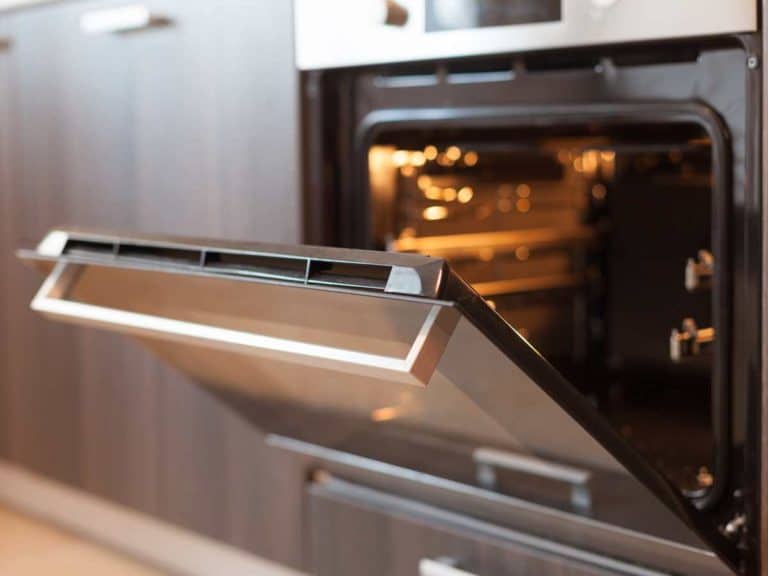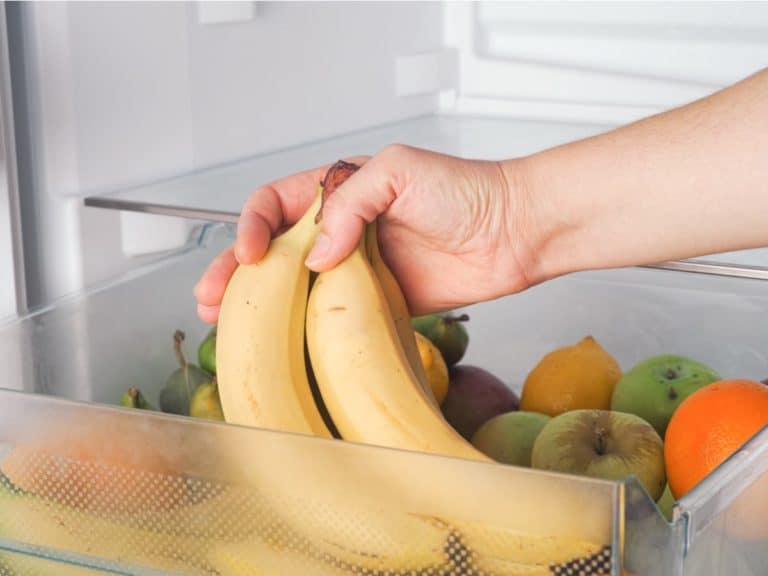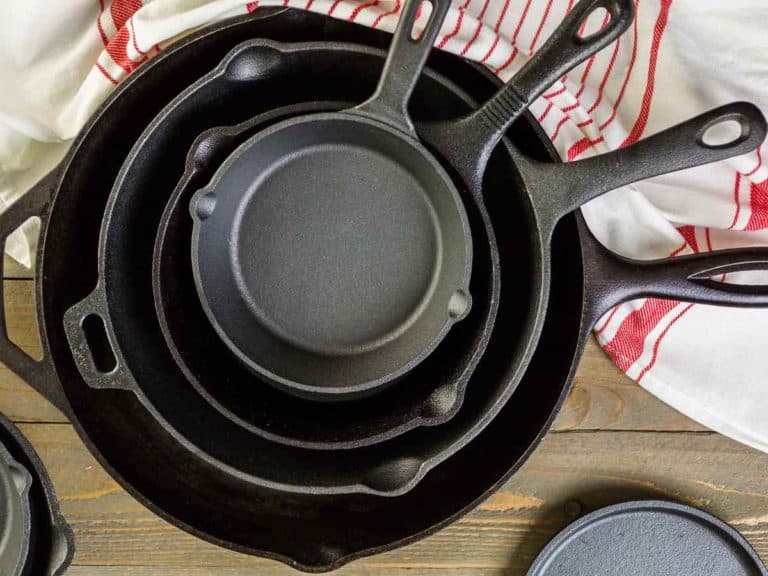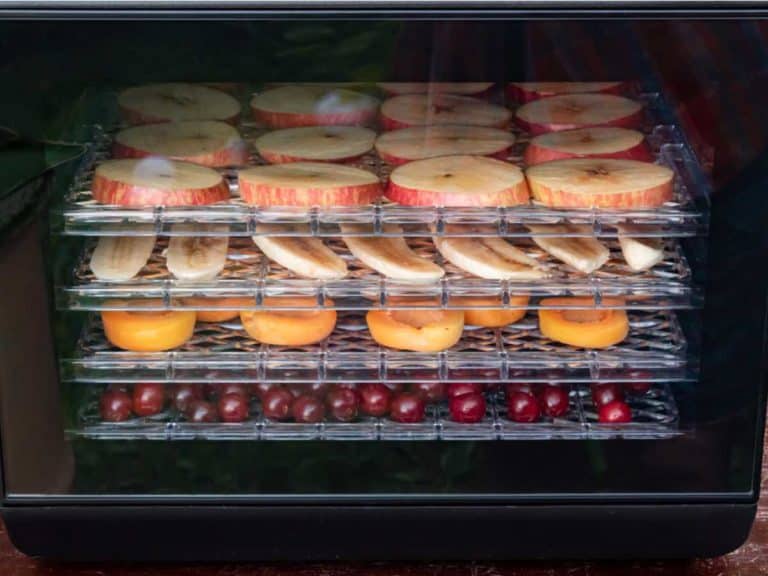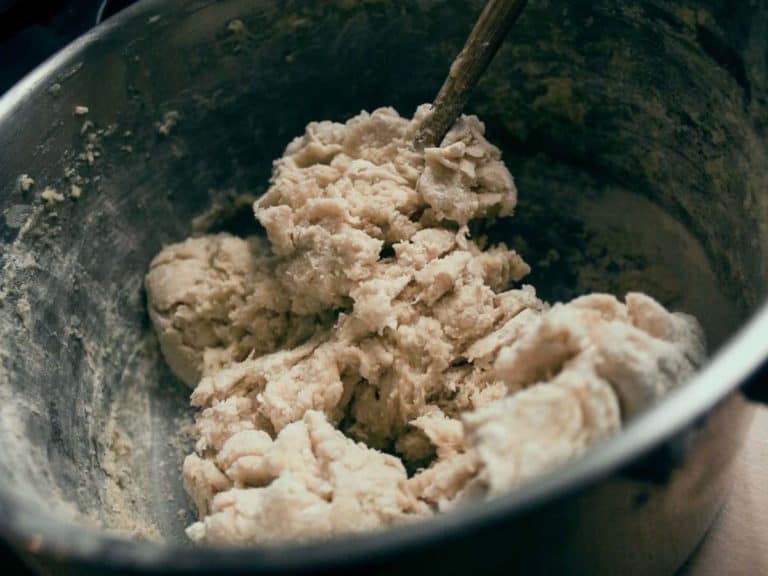How To Store Olive Oil For a Long Term
Where do you store your olive oil? Though it is very tempting and awfully convenient to store the oil right next to the stove, it is not the right spot. Here is the best way to store olive oil.
Olive oil must be stored in a cool, dry, dark cupboard that is away from heat and light. Look for a spot in the kitchen that is away from the oven. The best temperature to store olive oil is 57 degrees Fahrenheit.
The key to making sure it lasts is the proper storage. Also, you must consider the right container, since it is sensitive to heat and light. Olive oil has three enemies, oxygen, light, and heat. When your oil is exposed to these three elements, the oil will become rancid. The best way to prevent this is through proper storage.
4 Rules of Proper Olive Oil Storage
Olive oil is best used in thousands of recipes, usually drizzled at the start or finish of the dish to add extra flavor. Thanks to its versatile flavor and nutritional value, it gives us every reason to add it to pasta dishes, bread, cakes, pizza, salads, and the list goes on.
Considering how frequently you use olive oil, it makes sense that they are usually stored near the stove within arm’s reach. However, this is one major mistake that you can make in regards to keeping your favorite ingredients fresh.
Therefore, here is the must-know information when storing olive oil:
Avoid bright light and look for a tinted bottle
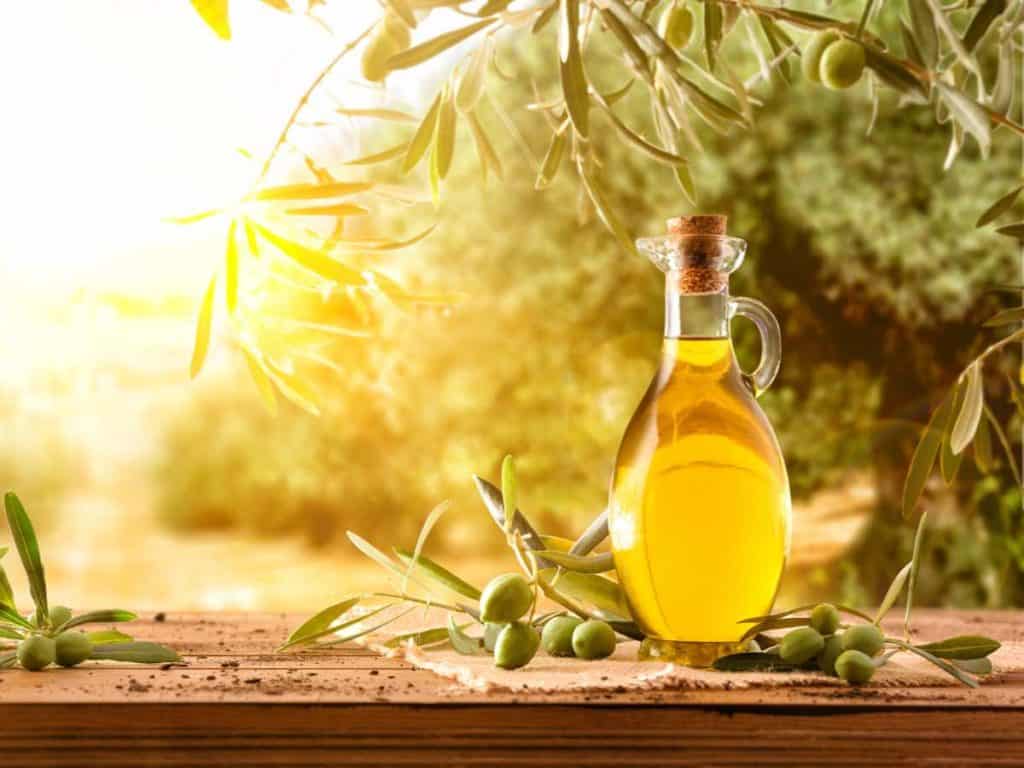
At the grocery store, buy the olive oil bottle at the back of the shelf, where the oil is shielded from strong fluorescent light.
Make sure to buy brands placed in dark-colored glass or plastic to prevent deterioration from ultraviolet rays. If you buy oil in clear glass, make sure you wrap it in foil when you get home and keep it covered.
Long-term exposure to light can greatly affect the flavor as well; therefore, store the olive oil in a dark cupboard or cabinet to prevent oxidation.
Keep the bottle closed
During cooking, it is easy to let the bottle of olive oil open.
This is not a good practice though, because it allows the air to easily access the oil, which accelerates the oxidation process and could cause the oil to turn rancid. Keep your bottle of olive oil-tight at all times for optimal freshness.
Keep the oil cool, but not in the fridge
Olive oil when exposed to warm temperatures can cause oxidation and eventually become rancid. Bottles should be kept away from heat but not in a cold place, as this can cause the oil to solidify. The recommended storage temperature of olive oil is around 68 degrees Fahrenheit.
Buy olive oil in small quantity
Olive oil is not an item that should be bought in large quantities unless it will be consumed right away. Because many factors can cause oxidation the oil can turn rancid before the bottle is finished. They should be consumed for one-time use and bought as needed to ensure it is fresh.
Storing Olive Oil In A Plastic Bottle
Yes, sometimes olive oil comes in plastic bottles.
However, if it is stored in a bottle, always replace the cap on the bottle and keep it tightly sealed. Do not leave the olive oil in a container that does not have a tight cap or other ways of sealing the container.
Do not store the olive oil in containers made from reactive metals like copper or iron. The chemical reaction between the olive oil and the metal can damage the oil and give off toxic substances. Some people do not recommend the use of plastic containers as they can absorb PVCs from the plastic.
Storing Olive Oil In Clear Glass Bottles
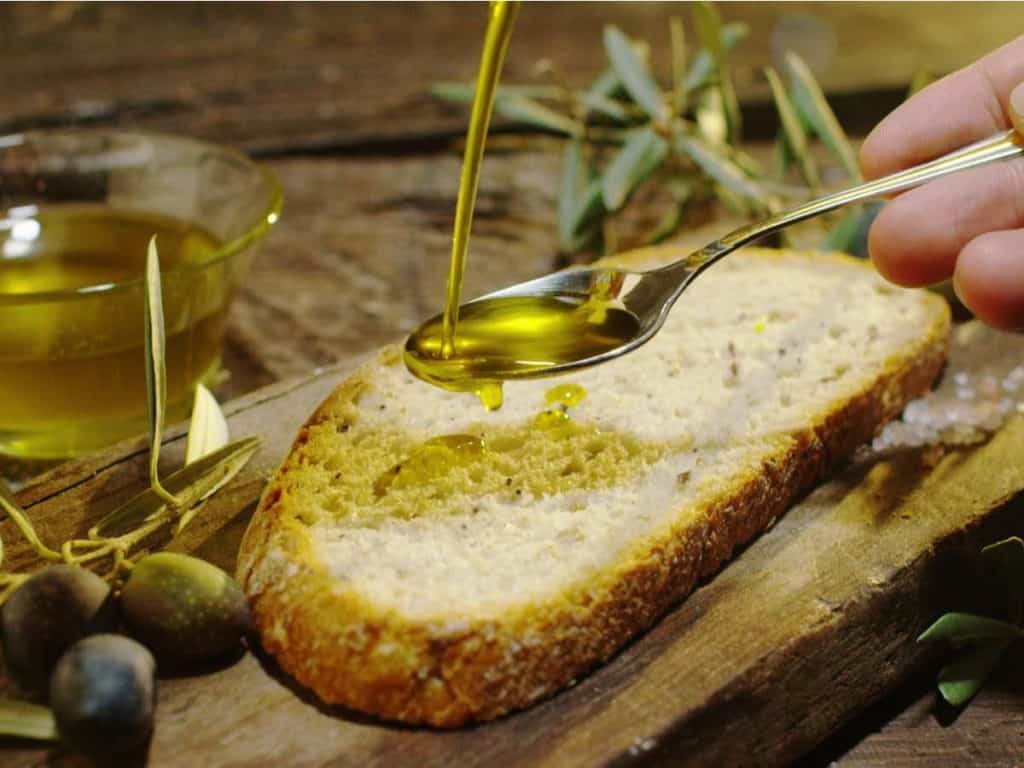
Olive oil is very sensitive to light; therefore, storing it in a clear glass is not highly recommended. If you wish to store it in a glass bottle, make sure that it is a dark color, because the color helps in filtering out the damaging ultraviolet rays. Dark cupboards or pantries are the best storage for olive oils.
Storing Olive Oil In The Fridge
Knowing how to store olive oil is essential to keep its quality. Olive oil that is exposed to oxygen, light, and heat, may become rancid. Hence, proper storage can prevent this.
Experts recommend storing the oil at between 55 and 60 degrees Fahrenheit for best results. Though storing it at the usual room temperature around 70 degrees Fahrenheit is ok, the kitchen is routinely warmer than that, so refrigerating the oil is recommended.
Refrigeration is best for long-term storage of all olive oils except those extra virgin olive oil. You may keep a small amount of olive oil in a sealed container at room temperature in your kitchen so that the olive oil is ready to use.
The ideal container is tinted glass that can keep air and light out. Do not use plastic, as the oil may leach harmful substances from it. Store the oil in a dark place and keep it away from the stove and other heat producers.
The remaining oil can be placed in the refrigerator, but remember that refrigerated olive oil will solidify and turn cloudy at cold temperatures.
Nevertheless, it does not affect the health benefits or nutritional value of olive oil. Returning the olive oil to room temperature for a short time can bring it back to its liquid texture and color.
You don’t want to “melt” the entire refrigerated supply of oil each time you want to use it, so another technique is to refrigerate the olive oil in a wide-mouth glass jar. Even though it solidifies, you can easily get any amount you just need. Placing the oil in clear jars is fine for this purpose because it is dark in the refrigerator most of the time.
Unlike wine, olive oil does not improve with age. As olive oil gets older, it gradually deteriorates and the acidity level rises and the flavor becomes bland. The best quality and flavor from your olive oil is within one year of purchase.
How To Store Olive Oil For The Long Term
The key to store olive oil for long-term use requires proper storage.
Store olive oil in a dark-colored glass bottle, which helps in keeping out the light. You can also place it in a stainless steel container. It helps in protecting the oil from exposure to sunlight. If you buy it in a large tin can, pour smaller amounts in a dark-colored bottle and use it as needed.
Also, do not store olive oil in plastic containers, because the chemicals from the plastic can seep into the oil. Avoid reactive metal containers like copper and iron that can cause a reaction with the oil.
It is also important to limit the oil’s exposure to oxygen because it can degrade the quality of oil and turn it rancid. Use the oil soon after buying it, and make sure to keep it stored with a cap or lid.
Best Containers To Store Olive Oil
Since olive oil deteriorates fast, it should be stored in an airtight container. Olive oil containers should be opaque so that the light will not get directly into the container. Olive oil is best consumed within a year of bottling because it becomes rancid over time.
Before we review the best containers to store olive oil, here are the things you need to remember when buying one.
- Air, light, and heat can deteriorate the olive oil easily. Make sure that the container is dark-colored to protect it from direct light.
- Look for a dispenser that has a slender sprout so that air cannot penetrate easily.
- The container must be made from stainless metal or ceramic so that it is safe from ultraviolet rays. Plastic bottles are not highly encouraged since they can leach and get mixed with oil.
Emile Henry Oil Cruet Bottle

Material: Ceramic Clay
This ceramic oil dispenser from the French company Emile Henry comes with a ten-year guarantee. Since it is made out of clay, the ceramic ensures that the oil is protected from any source of light, and the spout and anti-drip pourer feature will guarantee that you will always use the right amount of olive oil in your recipes.
Also, it comes in different colors and the manufacturer makes it easier to fit the bottle in any kitchen design and theme. The bottle is of the best quality and the oil never drips making this our top choice for best storage.
Rachael Ray Solid Glaze Olive Oil Bottle Dispenser

Material: Ceramic
This olive oil bottle is named after Chef Rachael Ray, who is known to have coined the acronym EVOO (Extra Virgin Olive Oil), as the ingredient in many different recipes.
This storage bottle is uniquely designed, easy to fill, easy to hold, and easy to clean. It is made from durable stoneware that is heat resistant and dishwasher safe. It comes with a built-in handle, thus making the dispensing bottle easy to handle.
A major downside of this bottle is the difficulty to fill in bottle. Rest assured that everything else about this product is of excellent quality.
Best Way To Store Olive Oil While Camping
When we went backpacking a few years ago, I picked up a cheap silicone travel bottle from a local store. I looked for something that can hold the olive oil but is not too space-consuming. Unfortunately, the olive oil leaks in my bag. Big mistake.
So, I ended up with an oily mess in my backpack. The day after our trip I researched some of the best and tested containers that are safe for camping, so that the next time we go on camping again, I will not experience the same that happen a few years ago
Carrying oils and sauces with you doesn’t have to be messy during trips. You must know which containers work best.
Here are the top 2leak proof, lightweight options that you can use on your next trip:
Nalge Travel Kit MD

If you are looking for a container that contains a small amount of oil or sauce, this tried-and-true bottle from the Nalgene Medium Travel Kit is a good option.
This kit contains a collection of leakproof plastic bottles with capacities of 1, 2, and 4 fluid ounces. Having bottles with varying capacities can minimize bulk and weight. This gives you the opportunity, wherein you can always select the lightest and least bulky container that meets your needs.
The bottles are compact, lightweight, durable, and dishwasher-safe. They are a suitable size for short camping and backpacking trips, such as weekend excursions. Moreover, they are versatile and suitable for holding almost anything, from spices to alcohol, even soaps, and shampoos.
If you don’t want to buy the whole collection, you can just buy the containers individually.
Platypus Soft Bottle

If you want to bring a large amount of olive oil, then the Platypus SoftBottle is the best option. This bottle is a leakproof, ultralight, and compressible bladder that is available in two sizes: 0.5-liter and 1-liter.
Personally, I love this bottle for large quantities because as you use it up it takes up less and less space in your pack, wherein it will reach a point where it can fit inside your backpacking, reducing the added bulk to your load.
How To Store Extra Virgin Olive Oil
If you walk into someone else’s kitchen counters, most probably you spotted a bottle of extra virgin olive oil stored by the stove or near the oven. Though it is a convenient place, heat can damage the oil, shortening its lifespan.
Storing olive oil is one of the most commonly asked questions, so it’s time for a refresher. Maintaining freshness is crucial when it comes to storing extra virgin olive oil. It is because fresh oil tastes great while rancid oil tastes terrible. Unlike wine, olive oil doesn’t improve with age. It is quite the opposite.
When storing olive oil, keep in mind that olive oil has four enemies:
Time
The time from when you pick the olives to when you crush them must be done immediately as possible. And once you open the oil, you’ll want to consume it sooner versus later. We recommend using up the oil within three to six months.
Light
Olive oil is naturally sensitive to sunlight, so make sure to minimize it or eliminate it at all times.
Temperature
The ideal storage temperature for olive oil is around 65 to 75 degrees Fahrenheit.
Oxygen
Exposure must be minimized or eliminated during storage.
How to Keep Extra Virgin Oil Fresh for Longer
Here are tips on how to keep your oil and ensure it’s as fresh as possible:
When shopping, look for a harvest date
THIS IS A BIG DEAL, especially if there’s no harvest date on the container. Most manufacturers put the harvest date on the back label of the bottle. The label also shows the “Best By” date for using the oil.
For example, a bottle of olive oil will show the harvest date of November 2011. And if that oil was bottled in March 2012, it will show a “Best By” date of March 2014. Remember that olive oil is best when consumed within two years to maximize quality.
Find the worst olive oil brands here.
Keep your oil away from direct light
Avoid storing the oil by a window as ultraviolet rays can deteriorate the olive oil over time. That’s why most olive oils are bottled in dark green bottles or in boxes to protect them from light.
Keep your oil away from any heat source
Heat can get damaged if exposed to heat from a nearby stove or oven, or even from warm sun rays. At home, when the oil is not in use, you can place it in a cool, dark closet downstairs.
Prevent your oil from being exposed to air
Air can degrade the oil’s quality and degradation will start once the oil is exposed to air. To prevent the entry of air, store your oil in an airtight container. Once you open a bottle, use the oil quickly, or you can store it in smaller bottles or steel containers to minimize its exposure to air.
Do not store it for a long time
It is not recommended to buy an expensive olive oil and save it for later use or just doling out a few tablespoons every few months. The quality of oil will become bad. So make sure to buy oil when needed and use it right away.
